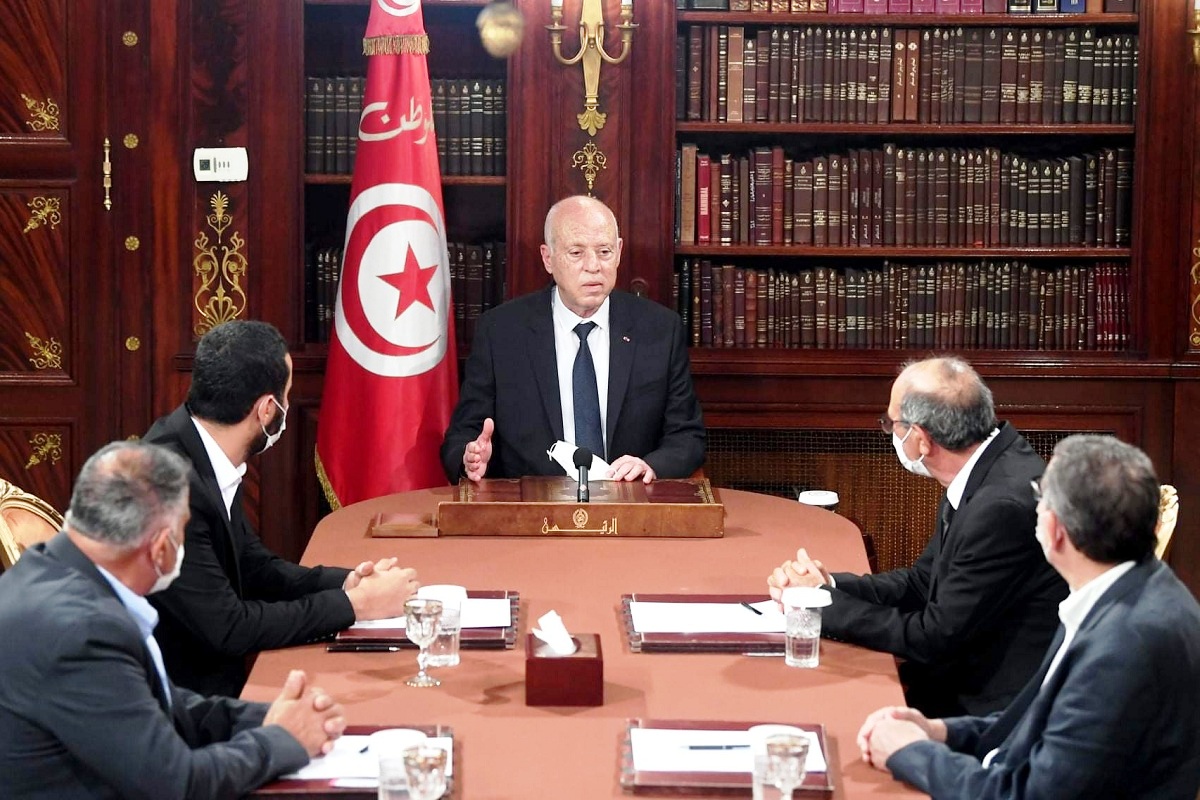Libya deploys intensive desert patrols to secure border areas with Tunisia
The Libyan Stability Support Agency has launched intensive desert patrols to secure areas along the border with Tunisia.
It is pretty obvious that the President has assumed both legislative and executive powers and thus reigns supreme.

(Image: Twitter/@TapNewsAgency)
Parliamentary democracy is in crisis in Tunisia a decade after the first stirrings of the Arab Spring. President Kais Saied has dissolved Parliament and dismissed Prime Minister Hichem Mechichi in a move condemned as an attack on democracy by his rivals, but which others have greeted on Monday with celebrations on the streets.
The President’s action is a sequel to the allegedly indifferent attitude of the government towards the pandemic. Small wonder the Head of State has been accused of spearheading a coup. Violent protests have erupted in several Tunisian cities over the government’s handling of the Covid-19 pandemic and the economy.
Advertisement
The raging ferment can be contextualised with President Saied’s pledge on Sunday that he would assume executive authority with the assistance of a new Prime Minister. The dynamics of governance are, therefore, set to change in a country that had ignited the upheaval in February 2011. Regretfully, it is now virtually a failed state.
Advertisement
There have been allegations of police brutality across Tunis, the Tunisian capital. Current developments pose the biggest challenge yet to a 2014 Constitution that split powers between the President, Prime Minister and Parliament. As it turns out, the crisis is overwhelming. The Prime Minister has been dismissed and Parliament dissolved.
It is pretty obvious that the President has assumed both legislative and executive powers and thus reigns supreme. “Whoever shoots a bullet, the armed forces will respond with a bullet,” he warned. He has also suspended the immunity of members of Parliament, insisting his actions were in line with the Constitution. That perhaps will be a subject of conjecture for a while and not merely in the Afro-Arab bloc.
The presidential backlash, which has been described by a segment of the populace as as a “state coup against the revolution”, has been robustly opposed by the biggest party in Parliament, the Ennahdha. President Saied’s statement followed an emergency meeting at his palace after thousands of Tunisians marched in several cities, with much of the anger focused on the Ennahdha party.
The murky waters have been stirred by the Parliament Speaker, Rached Ghannouch, who has accused the President of launching “a coup against the revolution and Constitution”. The President’s action could arguably negate the gains of the Arab Spring.
“We consider the institutions to be still standing and supporters of Ennahdha and the Tunisian people will defend the revolution,” Speaker Ghannouchi, who heads Ennahdha, said. Tunisia is plagued by the worst crisis since the heady days of the Arab Spring.
President Saied has been enmeshed in political disputes with Prime Minister Mechichi for more than a year, as the country grapples with an economic crisis, and a flailing response to the Covid-19 pandemic. Tunisia’s tragedy has been compounded with the executive and the legislature in limbo.
Advertisement